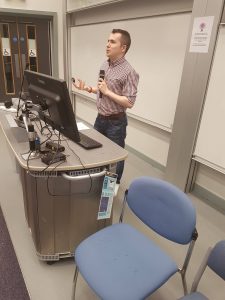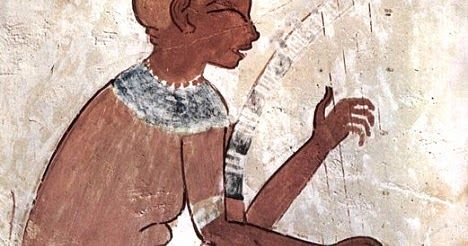One of the benefits of teaching online is that lectures can (and should!) be pre-recorded some time in advance of the actual scheduled class taking place (as already discussed in Behind the Scenes #1). This means that there is a greater degree of flexibility in scheduling the recordings, which in turn  means that it becomes easier to ask guest lecturers to talk to students about their own research or specialisms. Guest lecturers provide a valuable additional insight to the course usually by delving into a specific topic, which is complimentary to the syllabus, in greater detail.
means that it becomes easier to ask guest lecturers to talk to students about their own research or specialisms. Guest lecturers provide a valuable additional insight to the course usually by delving into a specific topic, which is complimentary to the syllabus, in greater detail.
This week, we had the pleasure here at Manchester of hosting Dr Huw Twiston Davies a Postgraduate Research Fellow from Leiden University in the Netherlands. Dr Twiston Davies works on the project “The Walking Dead: The Making of a Cultural Geography at Saqqara” which explores how people interacted with the vast necropolis of Saqqara, in particular during the New Kingdom. Dr Twiston Davies’ personal area of interest is textual transmission – how written texts changed, were read, copied and utilised after their initial creation, and the topic of his guest lecture was very much a merger of those two themes.
He spoke about the Harper’s Songs, a corpus of literary texts which appear on tomb walls, usually in conjunction with banquet scenes. These songs can be about deep philosophical issues related to life, death and existence. They help us gain a greater understanding for how the Egyptians viewed not just death, but also the funerary rituals which accompanied it. Some of the songs take a decidedly negative view of the prospects of the Afterlife, underlining how tombs collapse with time and how memory fades, encouraging the reader to enjoy life while they can, such as this 18th Dynasty example from the Tomb of Paatenemhab, originally from the Middle Kingdom Tomb of Intef:
Make holiday, don’t weary of it!!
Look, there is no one allowed to take their things with them,
and there is no one who goes away comes back again
Wise words indeed! We are very grateful to Dr Twiston Davies for giving a fascinating lecture and for sharing his expertise with us and with our students.







Recent Comments